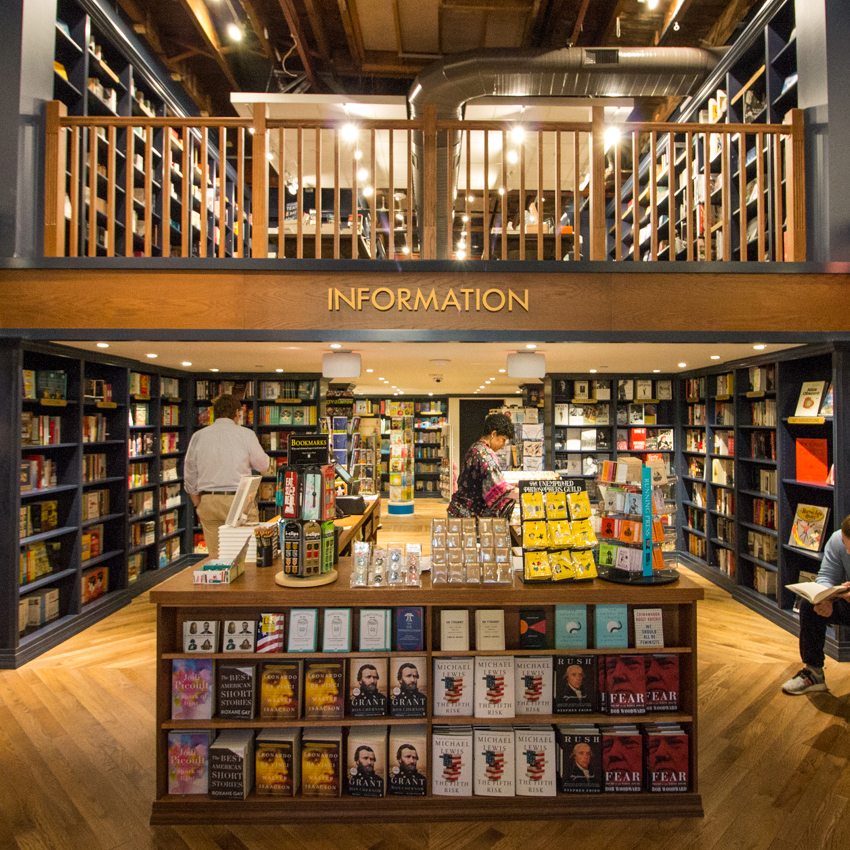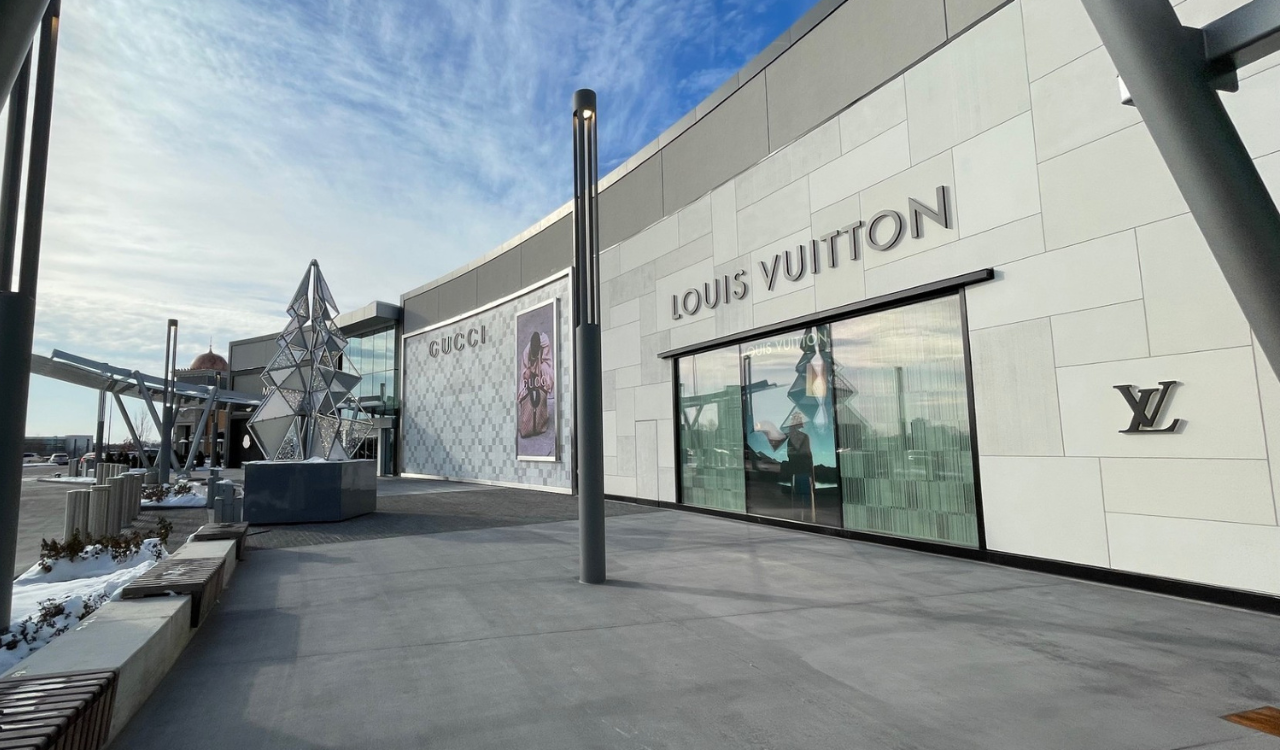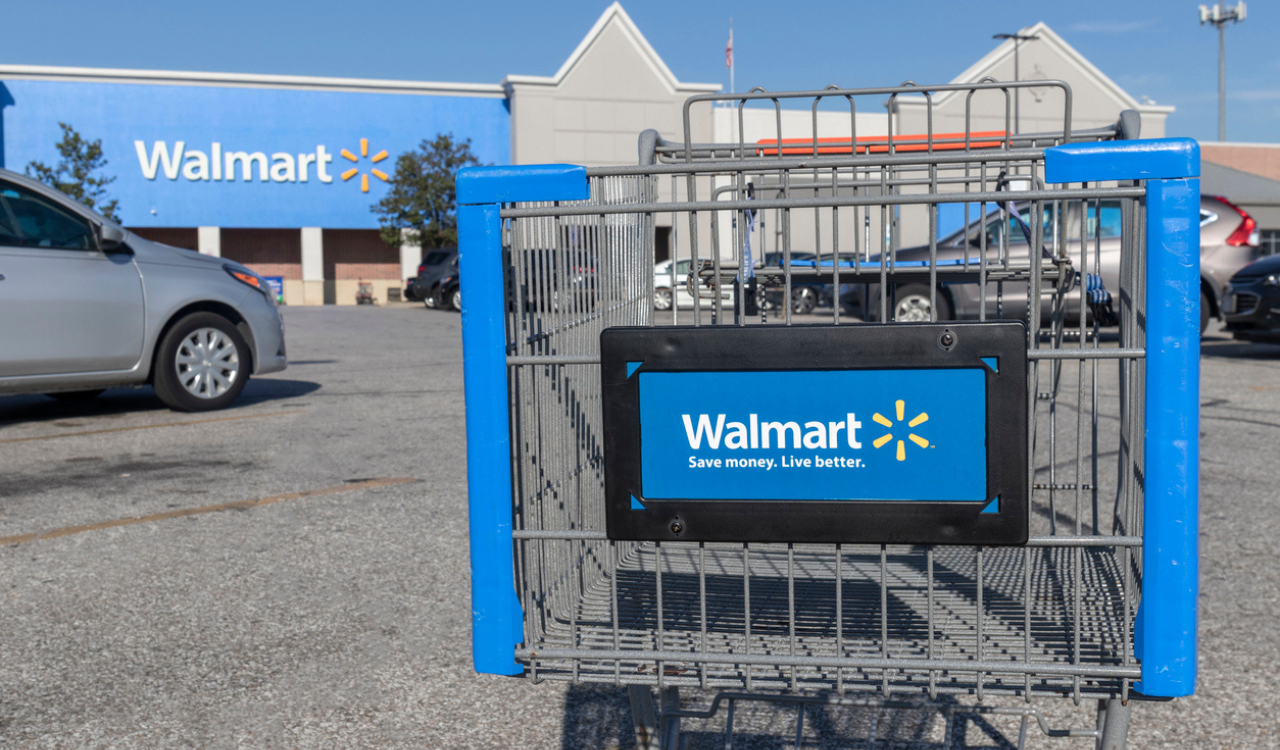In 2019, bookstores’ revenues were a shade above what they were 25 years ago, only $10.6 billion, falling from a high of $17.2 billion in 2007, according to the Census data. Amazon doesn’t report its book sales, but Statista puts the U.S. book publishing industry at ~$26 billion. You do the math.
Decline and Fall
While Amazon was gobbling up market share in the book business, it also decimated the bookselling industry. The Census Bureau is not as generous with data on the number of retail businesses as it is in reporting revenues, but in 1997 the number of bookstores stood at 6,837. By 2016 that number had dropped nearly 50 percent to 3,604. One of the major losses in those intervening years was Borders Group, which owned mall-based bookseller Waldenbooks as well as the big-box Borders stores. Borders Group went out of business in 2011.
The only remaining major competitor to Amazon in the bookstore space remains Barnes & Noble, which is hanging on by a thread. In 2005 Barnes & Noble boasted 681 stores, which dropped to 627 at the end of 2019, when it was acquired by hedge fund Elliott Advisors after years of flagging sales. The COVID-19 closures took more business away, but during the forced haitus, the company used downtime to refurbish and refresh some 350 of its current 614 stores. This may give it a second chance with customers upon reopening.
Shakespeare & Co. is not just a collection of stores – it takes the showroom concept and turns it into warehouses for all the books in the world, including out-of-print books and any title in the public domain.
With so much trouble for the major bookstore chains, prospects were even worse for independents. At the start of the last decade, many industry analysts predicted the collapse of independent booksellers, as the revenue book publishers generated from independents was only about 20 percent of that from retail chains, $642 million as compared to $3.06 billion from brick-and-mortar retail chains, according to the Association of American Publishers and the Book Industry Study Group.
Indies
Then something completely unexpected happened. From the ashes, independent bookstores started to rise again. The American Booksellers Association reported that its membership grew 49 percent to over 2,500 in 2019 from a historic low of 1,651 in 2009. The reasons why this renaissance occurred are documented in a working paper by Harvard Business School professor Ryan Raffaelli entitled “Reinventing Retail: The Novel Resurgence of Independent Bookstores.”
Raffaelli credits indie’s resurgence to the 3C’s. “Through practices like community, curation, and convening, bookstores authentically connect consumers with the values (e.g. localism) they may espouse,” Raffaelli wrote.
- Community: Local independents build strong personal connections to the values in their local community by engaging with customers who want to support neighborhood businesses.
- Curation: Local booksellers offer carefully selected titles catering to local tastes, along with providing passionate booksellers who help readers discover gems in their stacks through the gentle art of handselling.
- Convening: By becoming a local intellectual hub for customers to meet and interact with people who share common interests.
As You Like It
New York City-based Shakespeare & Co. (no relation to the legendary Shakespeare and Company bookstore in Paris) is just such a thriving independent bookseller. It operates three locations: one on Lexington Avenue near Hunter College, another on Broadway on the Upper West Side and a third on Walnut Street in Rittenhouse Square Philadelphia.
Robert Zaffiris, Shakespeare & Co.’s chief development officer, says each location works that trifecta of the 3C’s for success in independent bookselling. Each store is grounded in its community, offers a locally curated selection between 10,000-15,000 titles, and hosts events and gatherings as well as offering refreshments in each store’s café.
The Covid-19 closures disrupted Shakespeare & Co, as it did every other retailer deemed nonessential. Zaffiris says all stores are open now, though its in-store café seating is still off limits. He happily reports that Shakespeare & Co “will weather the storm better than most,” because it was able to seamless adapt to meet customer demands through online sales, at home delivery, in-store pickup, virtual events, and social media. But it’s ace in the hole during the closures and into the future is its exclusive Espresso Book Machine.
“To be competitive today with Amazon, you have to have the same ability to deliver the inventory.” Explains CEO Dane Neller. “Imagine having the ability to offer the selection of Amazon and the equivalent of the Library of Congress at your fingertips in three minutes in a book you can touch and feel? That is what we are doing with our Espresso Book Machine,” he says.
Developed in collaboration with Xerox and On Demand Books, another of Neller’s companies, the Espresso Book Machine (EBM), located in each Shakespeare & Co. store, represents a transformation of the book publishing, distribution, and selling business on par with the breakthrough 15th century Guttenberg printing press. “Our stores are not just stores, but they take showrooms and turn them into warehouses for all the books in the world, including out-of-print books and any title in the public domain,” he explains.
Looking at the book publishing and selling industry, Neller observed it was rooted in a 500-year-old system where publishers sourced books from authors, printed them, then shipped physical copies to stores. What wasn’t sold eventually shipped back to the publisher. This is the inefficient, age-old supply chain that Neller intends to transform.
“Amazon disrupted the book business through a digital-direct business. We are effectively doing the same thing but, in a store,” Neller says. “We are trying to revive an outmoded supply chain.” In effect, Shakespeare & Co. with its EBM intends to disrupt Amazon, which despite its Kindle platform and book reader technology, is still heavily dependent upon the traditional book publishing supply chain.
The Merchant of Books
Zaffiris explains through the EBM, Shakespeare & Co. has access to the long tail of the book publishing industry. “It’s the 80/20 rule. Some 80 percent of sales are generated from current titles less than two years old and popular titles that are frequently carried in bookstores. But then there is the backlist where the remaining 20 percent of sales are made or where abnormal spikes occur due to unexpected publicity. This is what our Espresso Book Machine can make instantly available in the store thus creating a superior customer experience and rivaling what’s available online.”
Right now, the EBM accounts for only about 10 percent of Shakespeare & Co. sales, largely because the concept is so new, consumers and publishers have been slow to get on board. “We’ve been stuck in a ‘chicken and egg’ quandary. Right now, we have access to millions of public domain books, but publishers have been slow to give us access to the high-value business,” he says, meaning the new titles.
Currently, Shakespeare & Co. has partnerships with Google Books and HarperCollins to provide instant paperback copies of titles in their stores, with other publishers gradually coming on board. “The books can be sold at the same price, though printing is frankly cheaper. The only thing that\’s limiting us is a willingness of the publishing community to make the choices available,” Neller continues.
Everyone is an Author
Thanks to having a book publishing and binding machine in each Shakespeare & Co. store, they also offer packages to authors to print, publish, and potentially sell their titles in the store. “We offer a range of self-published packages to authors,” Zaffiris explains. “People can create a customized book, say a compilation of love letters to give to their spouse or a book for their children, a biography for family and friends or a novel. We can do it all from design, copywriting, editing, and printing, either as à la carte services or a package which can include marketing and selling self-published books in our store.”
While Shakespeare & Co. is still a small-sized bookstore with three stores currently operating, it is larger than most indies. Plus, it has Jeff Bezos-sized ambitions not to just grow as a bookseller, but to transform the entire book industry supply chain so that any reader can find and own any book in the world. “We bring the warehouse into the store with an infinite inventory of books,” concludes Neller.




